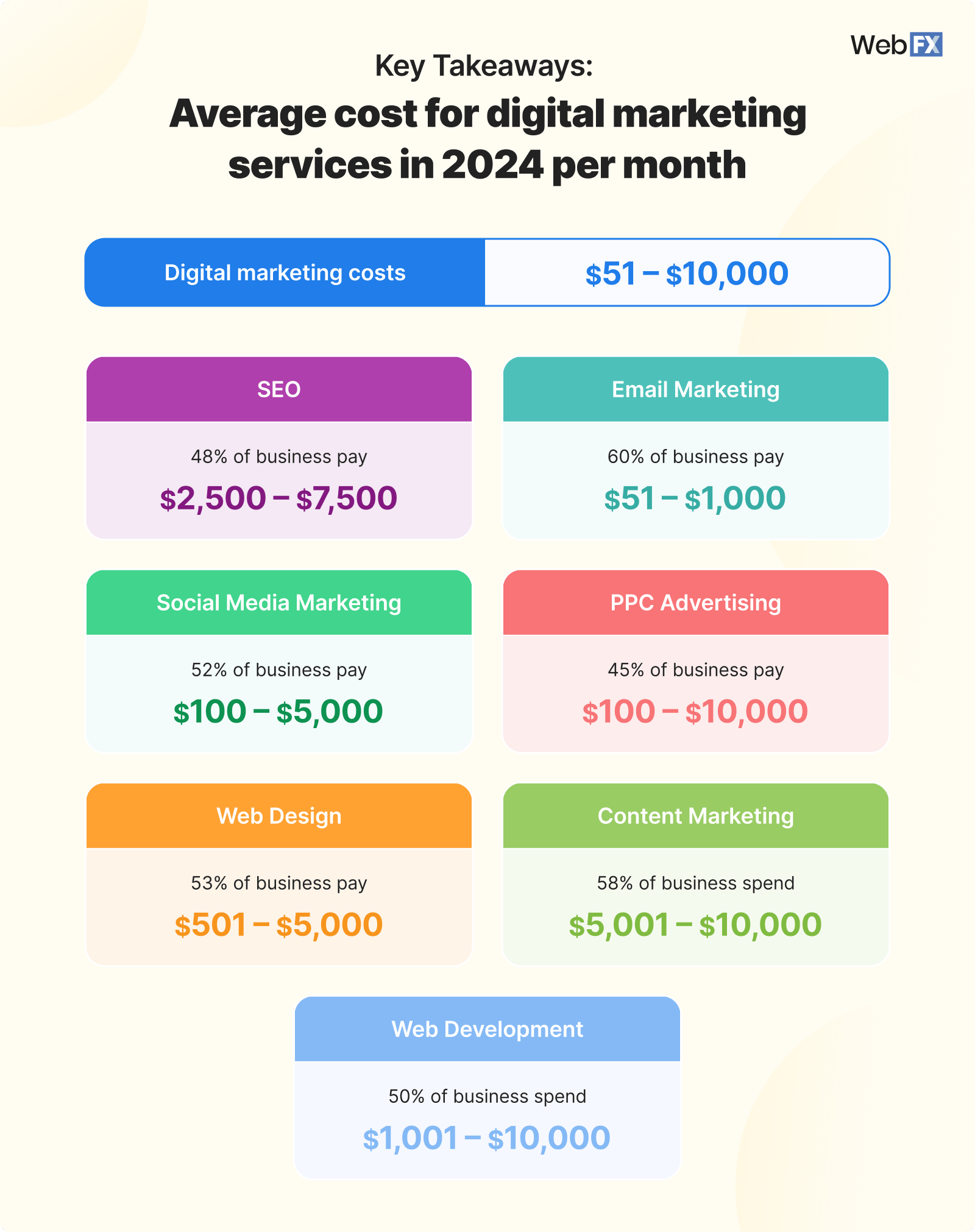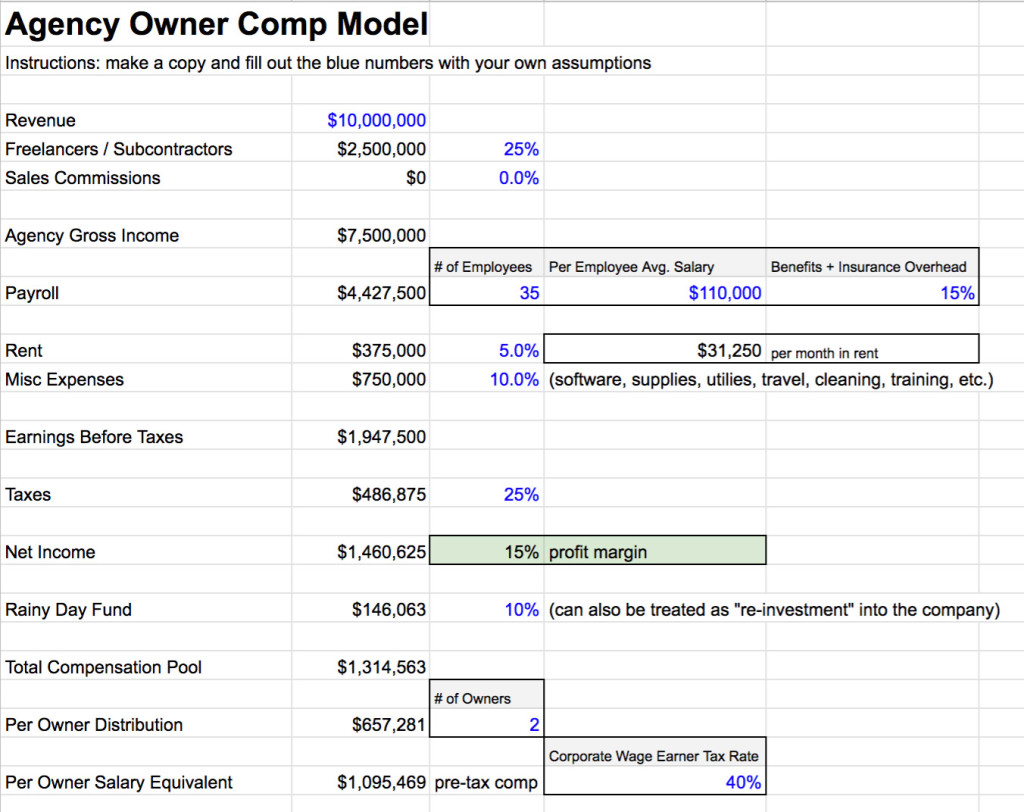- Building a Successful Digital Marketing Agency: Key Steps and Strategies
- How much should I pay a digital marketing agency?
-
Do digital marketing agencies build websites?
- Do Digital Marketing Agencies Build Websites?
- Why Do Digital Marketing Agencies Offer Website Development?
- What Types of Websites Do Digital Marketing Agencies Build?
- How Do Digital Marketing Agencies Ensure Website Quality?
- What Are the Benefits of Hiring a Digital Marketing Agency for Website Development?
- How can I create a digital marketing agency?
- How much do digital marketing agency owners make?
-
Frequently Asked Questions from Our Community
- What services does a digital marketing agency for construction companies offer?
- Why is digital marketing important for construction companies?
- How can a digital marketing agency help a construction company stand out?
- What should a construction company look for when choosing a digital marketing agency?
In today’s fast-paced digital landscape, businesses are increasingly relying on specialized expertise to navigate the complexities of online marketing. A digital marketing agency serves as a vital partner, helping brands establish a strong online presence, engage with their target audience, and drive measurable results. Building such an agency requires a strategic approach, combining technical knowledge, creative talent, and a deep understanding of market trends. From defining core services to assembling a skilled team and implementing cutting-edge tools, the construction of a digital marketing agency demands careful planning and execution. This article explores the essential steps and considerations for creating a successful agency in the competitive world of digital marketing.
Building a Successful Digital Marketing Agency: Key Steps and Strategies
1. Defining Your Niche and Target Audience
To build a successful digital marketing agency, the first step is to define your niche and target audience. Specializing in a specific industry or service, such as social media marketing, SEO, or e-commerce, allows you to stand out in a competitive market. Understanding your audience's needs and pain points will help you tailor your services and messaging effectively.
See Also What Books to Read for B2B Marketing?
What Books to Read for B2B Marketing?2. Building a Strong Brand Identity
A strong brand identity is crucial for establishing trust and credibility. This includes creating a professional logo, designing a user-friendly website, and developing a consistent tone of voice across all platforms. Your brand should reflect your agency's values, mission, and unique selling points.
3. Developing a Comprehensive Service Portfolio
Offering a wide range of digital marketing services can attract more clients and increase revenue. Consider including services like SEO, content marketing, PPC advertising, email marketing, and social media management. Ensure your team has the expertise to deliver high-quality results in each area.
See Also Google Sheets Skills for Digital Marketers
Google Sheets Skills for Digital Marketers4. Implementing Effective Marketing Strategies
To grow your agency, you need to practice what you preach. Use data-driven strategies to promote your services, such as creating valuable content, leveraging social media platforms, and optimizing your website for search engines. Regularly analyze your campaigns to identify what works and what needs improvement.
5. Building a Skilled and Reliable Team
Your team is the backbone of your agency. Hire professionals with expertise in various aspects of digital marketing, such as graphic design, copywriting, and analytics. Foster a collaborative and innovative work environment to ensure your team delivers exceptional results for your clients.
See Also Here's How Social Media Algorithms Work:
Here's How Social Media Algorithms Work:| Key Aspect | Description |
|---|---|
| Niche Selection | Focus on a specific industry or service to differentiate your agency. |
| Brand Identity | Create a professional and consistent brand image to build trust. |
| Service Portfolio | Offer a variety of digital marketing services to meet client needs. |
| Marketing Strategies | Use data-driven approaches to promote your agency effectively. |
| Team Building | Assemble a skilled and collaborative team to deliver high-quality results. |
How much should I pay a digital marketing agency?

Factors Influencing the Cost of Hiring a Digital Marketing Agency
The cost of hiring a digital marketing agency varies significantly based on several factors. Here are the key elements that influence pricing:
See Also Online Marketing Portfolio Examples
Online Marketing Portfolio Examples- Scope of Services: Agencies offering comprehensive services like SEO, PPC, social media, and content marketing typically charge more than those specializing in a single area.
- Agency Experience: Established agencies with a proven track record often command higher fees due to their expertise and reputation.
- Campaign Complexity: More complex campaigns requiring advanced strategies and tools will increase costs.
- Client Industry: Highly competitive industries like finance or healthcare may require more resources, leading to higher fees.
- Geographic Location: Agencies in major metropolitan areas often charge more due to higher operational costs.
Average Pricing Models for Digital Marketing Agencies
Digital marketing agencies typically use one of the following pricing models:
- Hourly Rates: Agencies may charge between $75 to $200 per hour, depending on their expertise and location.
- Monthly Retainers: Retainers range from $1,000 to $20,000+ per month, based on the services included.
- Project-Based Fees: One-time projects like website redesigns or campaign launches can cost anywhere from $2,500 to $50,000.
- Performance-Based Pricing: Some agencies charge based on results, such as a percentage of sales or leads generated.
How to Determine the Right Budget for Your Business
Setting a budget for a digital marketing agency requires careful consideration of your business goals and resources. Follow these steps:
See Also What Are the Best Companies to Work at for a Career in Marketing?
What Are the Best Companies to Work at for a Career in Marketing?- Define Objectives: Clearly outline what you want to achieve, such as increasing website traffic or boosting sales.
- Assess Your Resources: Determine how much you can realistically allocate to marketing without straining your finances.
- Research Market Rates: Compare pricing from multiple agencies to understand the average costs for your desired services.
- Prioritize Services: Focus on the most critical services that align with your goals to maximize ROI.
While evaluating costs, be aware of potential hidden fees that can inflate your budget:
- Setup Fees: Some agencies charge initial setup fees for campaigns or accounts.
- Ad Spend: Budgets for paid ads (e.g., Google Ads or Facebook Ads) are often separate from agency fees.
- Additional Services: Costs for extra services like graphic design or content creation may not be included in the base price.
- Contract Termination Fees: Some agencies impose fees for ending contracts early.
How to Evaluate the ROI of a Digital Marketing Agency
To ensure you’re getting value for your investment, assess the return on investment (ROI) of the agency’s services:
- Track Key Metrics: Monitor metrics like conversion rates, customer acquisition costs, and revenue growth.
- Compare Costs vs. Results: Analyze whether the agency’s fees are justified by the outcomes they deliver.
- Request Regular Reports: Ensure the agency provides detailed performance reports to measure progress.
- Adjust Strategies: Work with the agency to refine strategies based on performance data.
Do digital marketing agencies build websites?
Do Digital Marketing Agencies Build Websites?
Yes, many digital marketing agencies offer website development services as part of their comprehensive solutions. While their primary focus is on promoting businesses online, they often collaborate with web developers or have in-house teams to create custom websites tailored to their clients' needs. This ensures that the website aligns with the overall marketing strategy, enhancing brand consistency and user experience.
Why Do Digital Marketing Agencies Offer Website Development?
Digital marketing agencies provide website development services to ensure that their clients have a strong online presence from the ground up. A well-designed website is crucial for effective marketing campaigns. Here are some reasons why they include this service:
- Integration with Marketing Strategies: Websites built by marketing agencies are optimized for SEO, social media, and other digital marketing efforts.
- Consistency in Branding: Agencies ensure that the website reflects the brand's identity and messaging.
- Improved User Experience: A user-friendly website enhances engagement and conversions.
What Types of Websites Do Digital Marketing Agencies Build?
Digital marketing agencies can create a variety of websites depending on the client's needs. These include:
- E-commerce Websites: Designed for online sales, with features like product listings, shopping carts, and payment gateways.
- Corporate Websites: Focused on providing information about a company, its services, and contact details.
- Landing Pages: Single-page websites optimized for specific marketing campaigns or promotions.
How Do Digital Marketing Agencies Ensure Website Quality?
To deliver high-quality websites, digital marketing agencies follow a structured process:
- Requirement Analysis: Understanding the client's goals, target audience, and industry.
- Design and Development: Creating visually appealing and functional websites using the latest technologies.
- Testing and Optimization: Ensuring the website is responsive, fast, and free of errors.
What Are the Benefits of Hiring a Digital Marketing Agency for Website Development?
Choosing a digital marketing agency for website development offers several advantages:
- Holistic Approach: The website is designed with marketing goals in mind, ensuring better results.
- Time and Cost Efficiency: Agencies handle both design and marketing, saving time and resources.
- Ongoing Support: Many agencies provide maintenance and updates to keep the website running smoothly.
How can I create a digital marketing agency?
1. Define Your Niche and Services
To create a successful digital marketing agency, start by identifying your niche and the specific services you will offer. This helps you stand out in a competitive market and attract the right clients. Consider the following steps:
- Research the market to identify gaps or underserved industries.
- Choose a niche such as social media marketing, SEO, content marketing, or PPC advertising.
- Define your core services, such as website design, email marketing, or analytics.
2. Develop a Business Plan
A solid business plan is essential for structuring your agency and securing funding if needed. It should outline your goals, strategies, and financial projections. Follow these steps:
- Write a clear mission statement and define your agency's vision.
- Outline your target audience and ideal client profile.
- Include a detailed financial plan with startup costs, pricing strategies, and revenue goals.
3. Build a Strong Online Presence
As a digital marketing agency, your online presence is your most powerful tool. It showcases your expertise and attracts potential clients. Focus on these steps:
- Create a professional website with clear information about your services and portfolio.
- Optimize your website for SEO to rank higher in search engine results.
- Leverage social media platforms to engage with your audience and share valuable content.
4. Assemble a Skilled Team
Your team is the backbone of your agency. Hiring the right talent ensures you can deliver high-quality services to your clients. Consider these steps:
- Recruit professionals with expertise in SEO, content creation, and data analysis.
- Invest in ongoing training to keep your team updated on the latest trends and tools.
- Foster a collaborative and creative work environment to boost productivity.
5. Acquire Clients and Build Relationships
Client acquisition and retention are critical for the growth of your digital marketing agency. Implement strategies to attract and maintain long-term clients. Follow these steps:
- Use outbound marketing techniques like cold emailing and networking to reach potential clients.
- Offer free consultations or audits to showcase your expertise and build trust.
- Focus on delivering exceptional results to encourage client referrals and repeat business.
How much do digital marketing agency owners make?

Factors Influencing Digital Marketing Agency Owners' Income
The income of digital marketing agency owners varies widely based on several factors. These include:
- Client Base: The number and quality of clients significantly impact earnings. Agencies with high-profile clients or long-term contracts tend to earn more.
- Service Offerings: Agencies offering a wide range of services, such as SEO, PPC, social media management, and content marketing, often have higher revenue streams.
- Geographical Location: Operating in regions with higher demand for digital marketing services can lead to increased income.
- Experience and Expertise: Owners with extensive experience and specialized skills can command higher fees.
- Operational Efficiency: Efficient management of resources and operations can reduce costs and increase profitability.
Average Income Range for Digital Marketing Agency Owners
The average income for digital marketing agency owners can range significantly. Here are some key points:
- Small Agencies: Owners of small agencies might earn between $50,000 to $100,000 annually, depending on their client base and service offerings.
- Mid-Sized Agencies: Mid-sized agency owners can expect to make between $100,000 to $250,000 per year.
- Large Agencies: Owners of large, well-established agencies can earn upwards of $500,000 annually, especially if they have a diverse portfolio of high-paying clients.
Revenue Streams for Digital Marketing Agencies
Digital marketing agencies generate income through various revenue streams. These include:
- Retainer Fees: Monthly fees charged to clients for ongoing services.
- Project-Based Fees: One-time payments for specific projects or campaigns.
- Performance-Based Fees: Earnings tied to the success of marketing campaigns, such as a percentage of sales generated.
- Consulting Fees: Charges for providing expert advice and strategy development.
- Training and Workshops: Income from conducting training sessions or workshops for clients or other businesses.
Challenges Affecting Income Potential
Several challenges can impact the income potential of digital marketing agency owners. These include:
- Market Competition: High competition can drive down prices and reduce profit margins.
- Client Retention: Difficulty in retaining clients can lead to inconsistent income.
- Technological Changes: Rapid changes in technology require continuous investment in tools and training.
- Economic Conditions: Economic downturns can reduce client budgets and affect agency revenues.
- Operational Costs: High operational costs, such as salaries, software, and marketing expenses, can eat into profits.
Strategies to Maximize Income
Digital marketing agency owners can adopt several strategies to maximize their income. These include:
- Diversifying Services: Offering a broader range of services can attract more clients and increase revenue.
- Upselling and Cross-Selling: Encouraging existing clients to purchase additional services can boost income.
- Building Long-Term Relationships: Focusing on client retention and building long-term relationships can ensure steady income.
- Investing in Marketing: Effective marketing of the agency itself can attract higher-paying clients.
- Leveraging Technology: Utilizing the latest tools and technologies can improve efficiency and reduce costs, thereby increasing profitability.
Frequently Asked Questions from Our Community
What services does a digital marketing agency for construction companies offer?
A digital marketing agency specializing in construction companies typically offers a wide range of services tailored to the unique needs of the industry. These services often include search engine optimization (SEO) to improve online visibility, pay-per-click (PPC) advertising to generate leads, and social media management to engage with potential clients. Additionally, they may provide content marketing to showcase expertise, email marketing to nurture leads, and website design and development to ensure a professional online presence. The goal is to help construction companies attract more clients and grow their business through effective digital strategies.
Why is digital marketing important for construction companies?
Digital marketing is crucial for construction companies because it allows them to reach a broader audience and stay competitive in a rapidly evolving market. With the majority of potential clients searching for services online, having a strong digital presence is essential. A well-executed digital marketing strategy can help construction companies generate leads, build brand awareness, and establish credibility. Moreover, digital marketing provides measurable results, enabling companies to track the effectiveness of their campaigns and make data-driven decisions to optimize their efforts.
How can a digital marketing agency help a construction company stand out?
A digital marketing agency can help a construction company stand out by creating a unique and compelling brand identity that resonates with its target audience. This includes developing a professional website that showcases the company's portfolio, services, and testimonials. The agency can also implement targeted marketing campaigns that highlight the company's strengths and differentiate it from competitors. By leveraging SEO, social media, and content marketing, the agency can ensure that the construction company's message reaches the right people at the right time, ultimately driving more business.
What should a construction company look for when choosing a digital marketing agency?
When choosing a digital marketing agency, a construction company should look for an agency with experience in the construction industry and a proven track record of success. The agency should offer a comprehensive range of services, including SEO, PPC, social media management, and website design. It's also important to consider the agency's approach to communication and collaboration, as a strong partnership is key to achieving the desired results. Additionally, the agency should provide transparent reporting and analytics to measure the effectiveness of the campaigns and ensure a positive return on investment.
Leave a Reply


Articles of interest